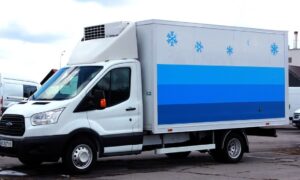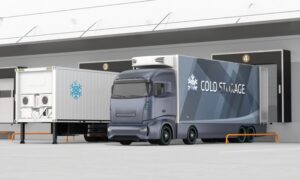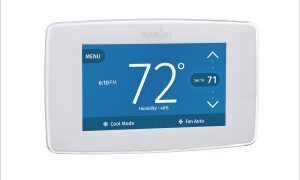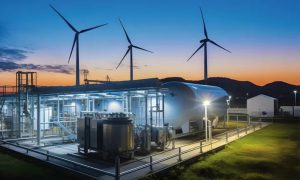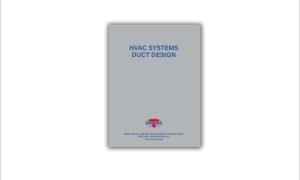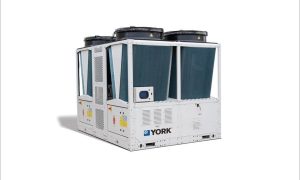Revolutionising food security through efficient cold supply chain solutions as the last-mile delivery of temperature-sensitive products has become increasingly crucial.
India’s HORECA (Hotel, Restaurant, and Catering) industry is undergoing a significant transformation due to the emergence of food ordering apps and doorstep delivery services. The efficient delivery of temperature-sensitive goods, particularly in the final stages of the supply chain, has become increasingly crucial. The desire for fresh, top-quality products and the convenience of ordering from home has fundamentally changed the demand for a smooth and temperature-controlled supply chain. The importance of technological improvements, integration, and efficiency-building has never been more significant, especially in the last-mile delivery sector.
Impact of food ordering apps and doorstep delivery services
The proliferation of food ordering apps and doorstep delivery services has expanded notably since the onset of COVID-19 and continues to thrive during the monsoon season. This has revolutionised how consumers interact with the HORECA sector. These platforms have democratised access to a diverse range of cuisines and products, empowering consumers with the convenience of ordering from their favourite restaurants and suppliers at the touch of a button.
Urgency for technological advancement
Consumers increasingly prioritise fresh and high-quality produce, so the demand for efficient last-mile delivery has intensified. However, traditional delivery methods often need help to meet these expectations, leading to challenges such as food spoilage, wastage, and compromised quality. Challenges like limited access to reefer vehicles for smaller volumes and maintaining the optimal temperature throughout the supply chain continue to plague the last-mile delivery. Inconsistent or inadequate temperature control during transportation poses a significant risk of spoilage and compromised quality, leading to increased food wastage and financial losses. Additionally, the fragmented nature of the last-mile delivery network, especially in remote areas, hinders seamless monitoring and real-time tracking of shipments. These challenges make it difficult to meet the growing demand for efficient and reliable delivery of perishable goods. Addressing these challenges is crucial to ensuring food safety, reducing wastage, and promoting sustainable practices in the HORECA sector.
Ensuring the right temperature from perishable ingredients to freshly prepared dishes during delivery is crucial for preserving taste, quality, and safety. The increasing demand for this calls for rethinking final-mile deliveries, pushing those involved to seek creative answers that combine technology, temperature management, and effectiveness. India faces substantial food wastage annually, highlighting the urgent requirement for technological innovations and effective supply chain solutions.
Customised solutions
In light of the challenges mentioned above, creating customised solutions catering to last-mile deliveries for smaller volumes is vital. And the key to unlocking the potential of temperature-sensitive transport solutions lies in seamless integration and efficiency-building measures. Advanced technology, such as Internet of Things (IoT) sensors and real-time tracking systems, are pivotal in providing valuable temperature, humidity, and location data. Such data-driven insights enable stakeholders to monitor the entire supply chain, swiftly identify potential issues, and take proactive corrective actions to ensure the quality and safety of food products.
Moreover, integrating Artificial Intelligence (AI) algorithms with transport systems can optimise delivery routes, reducing transit times and minimising the risk of food spoilage. These efficiency-enhancing measures guarantee that food products arrive in pristine condition and contribute to cost reduction, benefiting suppliers and the HORECA sector.
Creating a sustainable ecosystem
Investing in temperature-controlled warehouses and distribution centres is crucial to encourage the extensive use of temperature-sensitive transportation solutions within the HORECA sector. Creating a network of these facilities throughout India would strengthen the cold-chain infrastructure, decrease food wastage, and ultimately improve food security in the long term. The government incentives and policy support can encourage stakeholders to invest in cutting-edge technology and foster innovations that optimise last-mile deliveries for the HORECA sector.
In conclusion, transforming final-mile deliveries within the HORECA sector is crucial to guarantee food security, especially in a diverse and dynamic country like India. Embracing specialised temperature-sensitive transportation solutions can transform the supply chain, address food wastage issues, and meet consumer preferences for fresh and high-quality products.
Expertise shared by: Swarup Bose, Founder and CEO, Celcius Logistics.
Cookie Consent
We use cookies to personalize your experience. By continuing to visit this website you agree to our Terms & Conditions, Privacy Policy and Cookie Policy.



